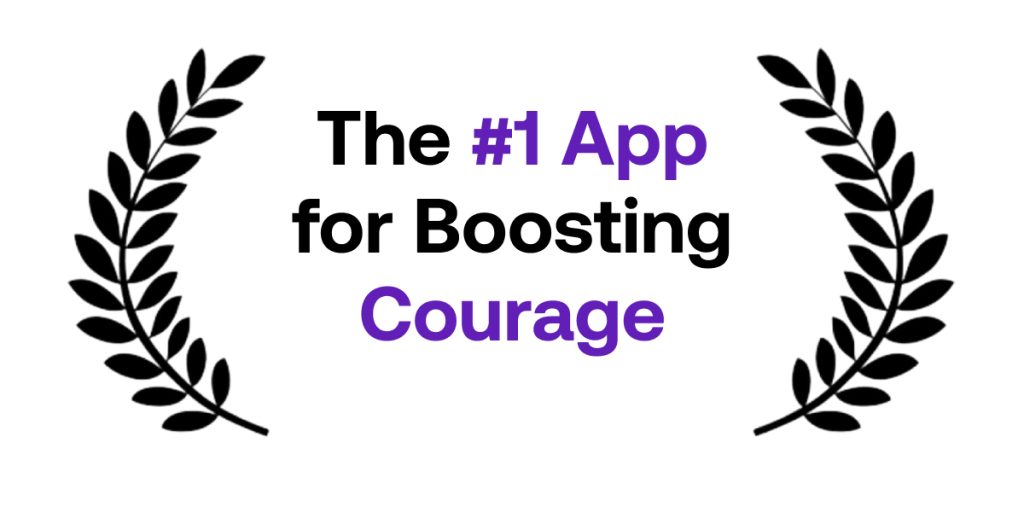“Before certain business meetings or personal confrontations, I try to put myself into a relaxed state by controlling my breathing; this relaxes and refreshes me as well as calming my mind. Controlled breathing restores calm, confidence, and strength.”
–Joe Hyams
Mid-terms are next week, and you haven’t done zilch to get ready.
You’ve made no flash-cards, no study guides, nada. And you’ve missed the last three classes.
So, in the face of this anxiousness, what are your options?
You could spend your days curled up in the feedle position, trying to forget the world outside.
You could spiral into an existential crisis, wondering what life is all about if it’s just exam after exam, passing or failing depending on the mood of your professor.
You could, like every other student, cram the night of and then pray you remember enough to pass on exam day.
Read the Ultimate Samurai guide to chopping down procrastination here.
These would be the choices of people with anxiety.
However, it’s also possible to enter this period with a calm and patient mindset, letting whatever will happen happen.
Why? And how could you possibly do that when another milestone that determines the course of your academic life is coming up?
NEW! Put the principles from this article into practice with the free courage-boosting MaArtial app on the App Store for iOs and Play Store for Android.
Empty Your Cup
Don’t expect things to change drastically if you’ve not been gradually working your way up to them in the first place. But that’s no matter, and there’s still time to change course–what could be the difference between passing and failing.
But you’re not going to do that through meaningless worry and pondering the grand scheme of things.
And, if you find your mind stuffed with meaningless worry, you’re not going to do any effective studying anyway.
So, really, how do you enter exam period without meaningless worry?
There’s an old Zen Buddhist parable of a seeker of wisdom visiting a tea master to understand meaningless worry and approaching zen:
“The cup was filled, yet the master kept pouring until the tea overflowed onto the table and dirtied the scholar’s robes. The scholar raised his hands for it to stop and cried, ‘Stop! Can’t you see the cup is full?’
‘Exactly,’ the master replied knowingly ‘Like this cup, you are so full of ideas that nothing more will fit in. Come back to me with an empty cup.’”
That’s what approaching zen, which comes from the sanskrit dhyana, meaning “concentration” or “meditative absorption” is all about: clearing you mind of all that useless clutter –prejudices, impressions, biases, etc.– that hinder your focusing on your one true objective.
Of course, it isn’t always so easy, and, if you do clear your head for once and focus on the one need you’ve got at the moment, you’ll probably find all of that clutter coming back soon enough.
So, this begs a more important question: how do you maintain a state of Zen, especially in a time of urgency?
Que Takuan Sōhō.
The Confused Mind
We’ve mentioned this Zen swordmaster before, and he’s got more to say here.
In maintaining a Zen mindset, Takuan Soho draws a distinction between two opposing mindsets: what he calls the Confused Mind and the Right Mind:
“The Right Mind is the mind that does not remain in one place. It is the mind that stretches throughout the entire body and self.
The Confused Mind is the mind that, thinking something over, congeals in one place.
When the Right Mind congeals and settles in one place, it becomes what is called the Confused Mind. When the Right Mind is lost, it is lacking in function here and there. For his reason, it is important not to lose it.” (Sōhō, 12).
It may seem counter-intuitive–especially with our previous emphasis on a focus on one thing–but, when you worry about the imminent exams you’ve not yet studied for, your mind becomes turgid with worry, i.e. Confused. With the Right Mind, your focus on one thing above all allows you to depart worry and take the right steps to approach exams without feeling overwhelmed.
And now, the most burning question of all, how do you empty your cup and attain the right mind?
Don’t Hesitate to Meditate
Zen meditation, otherwise known as Zazen meditation, requires an “empty cup” and the Right Mind.
Set aside an hour a day or so for study, and to get into the best mindset for it, become Zen through meditation. Here, we’ve got a guided meditation using the MaArtial method:
- Wearing breathable, flexible clothes, sit cross-legged in a room you feel comfortable in.
- Keep your back as straight as possible, and place your hands in a cup position–one on top of the other–directly in front of you.
- Focus on one item in the room and, through your nose, breathe in slowly (around 5 seconds) with your diaphragm, filling your lungs to the bottom.
- Breathe out slowly, letting all of your anxieties and worries escape through your nostrils.
- Repeat twice, then close your eyes and continue 3 more times.
Be consistent with your breathing–it may be tempting to change your rhythm, but that will distract you from focusing. And don’t rush it: give yourself enough time to let the meditation have its full effect.
With Zen meditation, you won’t have to worry so much about having an anxiety attack and will enter exam period with a cool head.
At MaArtial, we distill timeless philosophy into practical modern rituals. These can be used to boost self-confidence, improve health, and even find serenity.
To find out more, try our courage-building video course that contains six rituals and over an hour of hand-animated video rituals that include breathing exercises, mediation techniques, and much more. You can try the first ritual completely free.
Subscribe to the MaArtial YouTube channel to stay up to date with our latest videos. For more timeless inspiration, check out our podcast on Spotify or your preferred platform, and follow us on Facebook and Instagram for our latest updates.
Begin your journey towards inner mastery with MaArtial.
Hyams, Joe. Zen in the Martial Arts. Houghton Mifflin, 1979.
Sōhō, Takuan. The Unfettered Mind: Writings of the Zen Master to the Sword Master. Translated by William Scott Wilson. Shambhala, Boston: 2002.














